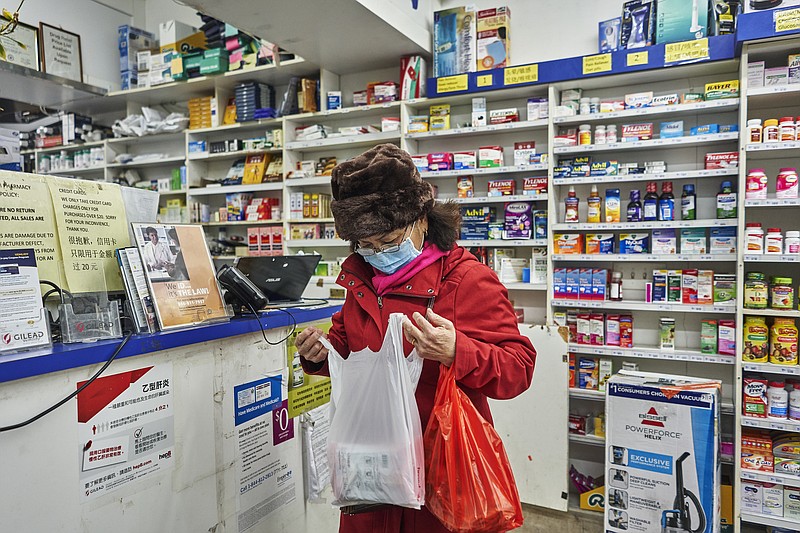Imagine the panic in Wuhan as Chinese authorities and businesses closed the gates on the city, leaving 11 million residents there in virtual isolation and de facto quarantine as the dreaded coronavirus spreads.
And yes, there's panic elsewhere, too. As of Thursday, Chinese officials had confirmed over 8,100 cases of the mysterious illness - more than were sickened by SARS, a respiratory infection that that spread across China in 2002 and 2003, striking 5,327 people and killing 349. What's more, this new bug has now spread to people in other countries - and to people who have never visited China.
But take a deep breath.
This coronavirus, officially known as 2019-nCoV, is merely the new kid on the block - albeit a strong one. Our run-of-the-mill old standby influenza already has sickened at least 15 million Americans this winter, hospitalizing 140,000 and killing 8,200, according to the Centers for Disease Control and Prevention.
And flu season in America hasn't even peaked. In a bad year, the plain old seasonal flu kills up to 61,000 Americans, yet health officials have to beg folks to get flu shots. Last year, fewer than half of U.S. adults did so.
(MORE: Hamilton County health officials: Flu is much bigger concern than coronavirus)
Worldwide, ordinary flu causes up to 5 million cases of severe illness and kills as many as 650,000 people every year, according to the CDC and the World Health Organization.
What is increasingly becoming clear, however, is that the growing isolation of coronavirus-wracked cities in China likely will affect our shopping, commerce and economic lives.
Two weeks ago, as Wuhan - a major industrial and transport hub of China - went on lockdown, stock markets tumbled.
And last week, The New York Times posited: "The world is quickly realizing how much it depends on China."
Consider: Four decades ago, China was an impoverished country, but now it is the world's largest manufacturer and accounts for roughly one-sixth of global economic output.
When SARS broke out there 17 years ago, it slowed China's growth rate by 2 percentage points. What will happen this time when coronavirus already is bigger than SARS and actually is estimated to leapfrog the SARs cases by five- or 10-fold - just due to underreporting.
British Airways and Air Canada were the first major airlines to cancel flights to mainland China. Apple rerouted its supply chains. Ikea closed stores and ordered staff to stay home. Starbucks closed more than half of its 4,292 stores in China and warned investors of a financial blow.
General Motors, Nissan, Toyota and Ford lengthened by at least a week or two their factories' already scheduled Chinese Lunar New Year closures - just because of virus-related disruptions. And companies like G.M., Honeywell, Facebook and Bloomberg restricted travel for employees in China and established their own self-quarantine measures, according to The New York Times.
Why so much panic - for health and the economy - if we know flu is far more widespread than coronavirus?
This coronavirus has never been encountered before. It has come from animals - where our newest and most troubling viruses usually originate. Ebola and swine flu are other examples.
It causes pneumonia, and because it is a viral form of pneumonia, antibiotics are no help. Whats more, the antiviral drugs we have already for the influenzas we're accustomed to will not work. Nor will the flu shots we already have. New vaccines are still months or more away.
Those sickened with the virus and admitted to hospitals may get support for their lungs and other organs, as well as necessary fluids, but their recovery still will largely depend on the strength of their immune systems. Many of those who have died were known to have been already in poor health.
(MORE: US reports first case of person-to-person spread of new virus)
In addition to being a strong virus spread from person to person, this bug is a fast-moving one: In just one week ending Wednesday, the number of confirmed cases had more than tripled.
"Americans should know this is a potentially very serious public health threat, but at this point Americans should not worry for their own safety," said Alex M. Azar, the U.S. secretary of health and human services, last week.
The reality? There's a lot about this illness that our doctors and researchers still don't know.
And that means there's a lot about its overall impact that we still don't know - maybe especially its impact on our psyches.
